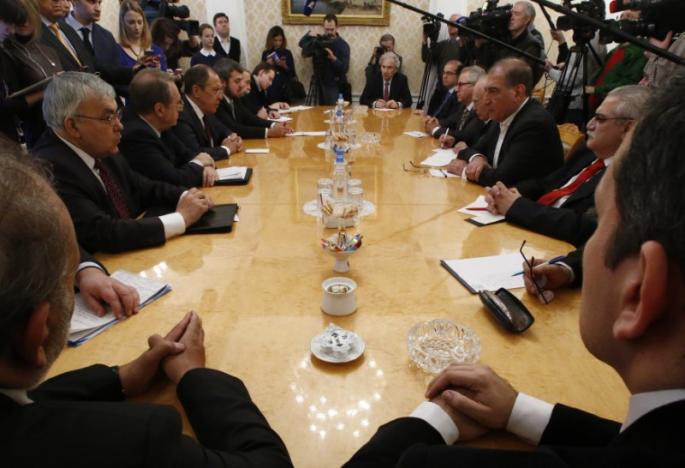Last week I wrote an article titled: “Russia, Turkey, Assad and a New Stage,” which aimed to introduce a new phase after Donald Trump reached the presidency and declared during a phone call with the Custodian of the Two Holy Mosques King Salman bin Abdulaziz the importance of imposing safe zones in Syria.
Earlier, Russian Foreign Minister Sergei Lavrov said during an interview with a Russian website that Astana talks were in favor of efforts to solve the Syrian crisis but should not replace the U.N.-sponsored talks. Lavrov added that Russia is not planning to allow Astana talks replace Geneva and that it backs the U.N.-sponsored talks there.
This is unusual for a couple of reasons, basically, as reported by Reuters “The latest round of U.N. talks had been planned to begin in Geneva on Feb. 8 but Russia’s Foreign Minister Sergei Lavrov said last week that they had been postponed.”
Also, Astana meeting intended to impose a new Syrian constitution and was also considered an Iranian victory since it was held in the absence of U.S. and Saudi Arabia. Iran insisted that it rejects the participation of Riyadh and Washington, but things have changed now – we are facing a new phase and Russia is trying to return to the midpoint.
Somebody might ask, how? Well, the answer is simple. When the Russian FM says that his country supports Geneva talks on Syrian crisis then this underlines the Syrian-U.S. presence and impact, unlike the Iranian wish. This also means that Astana meeting, sponsored by Russia and Turkey, failed to reach its goals or is not sufficient with the Saudi-U.S. absence as well as the U.N. sponsorship.
Hence, resolving the Syrian crisis is impossible without Riyadh and Washington – the Syrian crisis can’t be resolved by Turkey and Russia individually with compensating Iran. This means that we’re in a new stage of the Syrian crisis where Russians are trying to return to the midpoint with Syria. Thus, Russia is no longer a point of strength for Iran or Bashar al-Assad, but is seeking its own interests – majorly not to clash with Trump.
All this reveals a Russian-Iranian change, confusion in Turkish role and the return of Assad to his normal place on the negotiations’ table where he has no value or role. This is a spiritual defeat of Iran’s followers from the so-called Hezbollah to other terrorist Shiite militias.
Therefore, we are facing a new phase. As I wrote last week, the month of misleading good news in Syria is over – Russia is repositioning itself and a new Iranian dilemma is added to Tehran dilemmas during the presidency of Trump.
